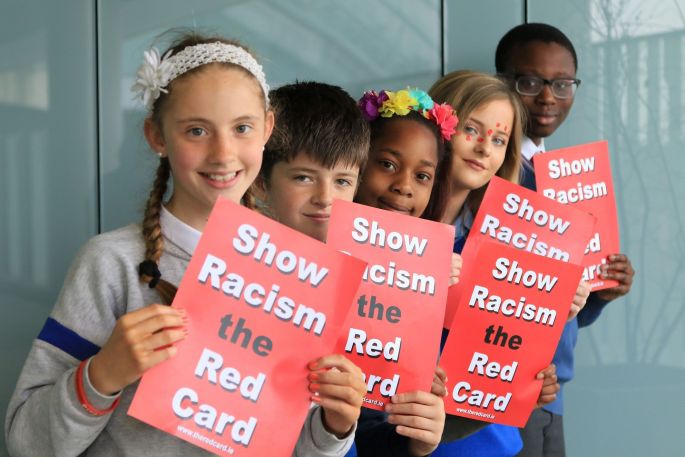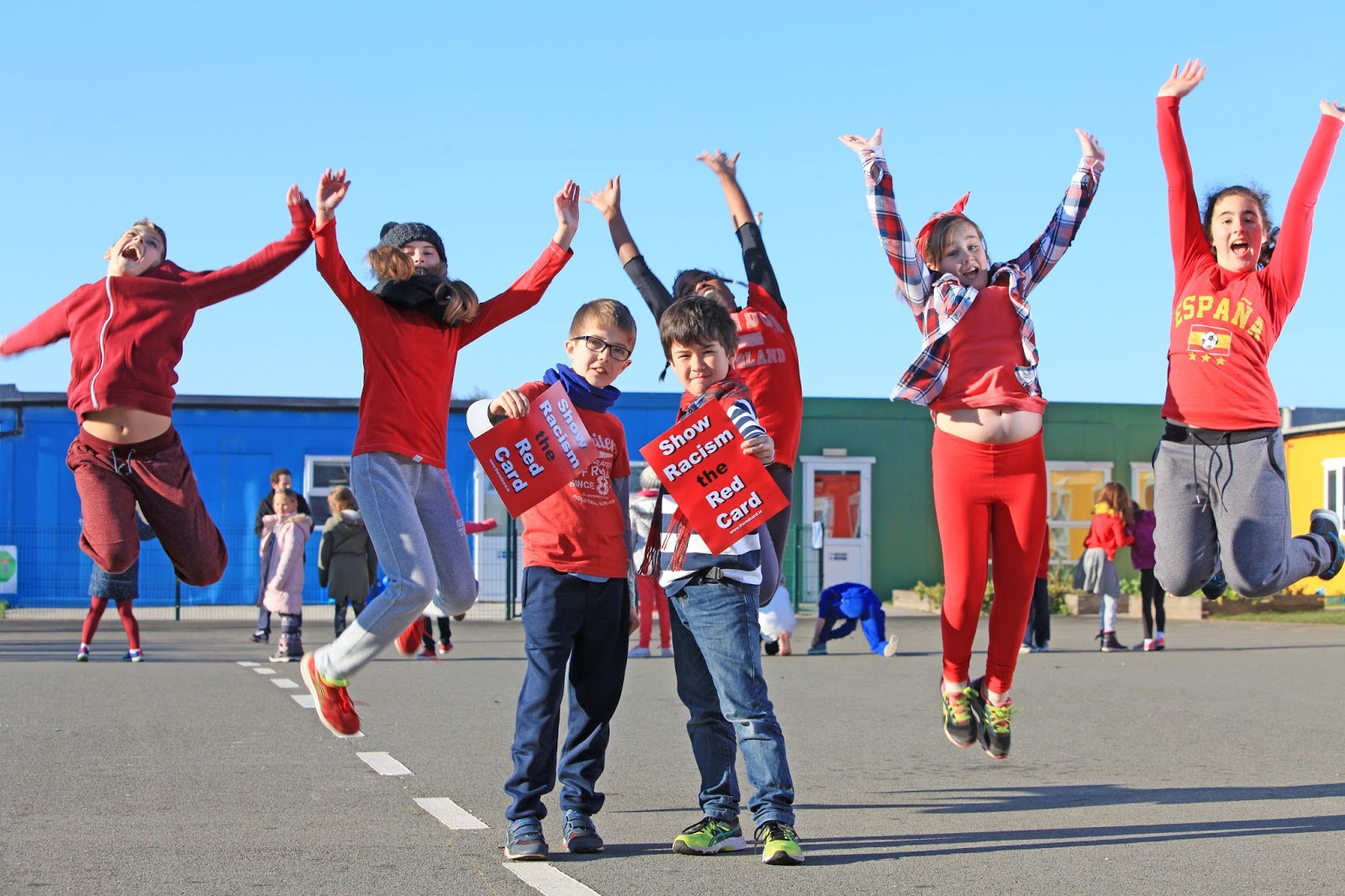Show Racism the Red Card – an Interview with Garrett from Ireland
By Denise Nanni und Milena
Rampoldi, ProMosaik. In the following our interview with Garrett of THE RED CARD,
Ireland. His organisation struggles against racism as a dynamic and changing
phenomenon. Awareness and education are the best ways to address any kind of
racism. We have to SHOW RED CARD! Would like to thank Garrett for his time and
important impulses.
Rampoldi, ProMosaik. In the following our interview with Garrett of THE RED CARD,
Ireland. His organisation struggles against racism as a dynamic and changing
phenomenon. Awareness and education are the best ways to address any kind of
racism. We have to SHOW RED CARD! Would like to thank Garrett for his time and
important impulses.

Which do you think are the main
causes of racism?
causes of racism?
The causes of racism are complex but racism should be
seen as a phenomenom, not as something fixed.
related to social conditions.
comes in many different forms such as discrimination in the case of employment
or bullying at school. Racism occurs at different levels and if not addressed
at the lower levels, then it can become more serious.
such as the holocaust, slavery and apartheid. However the holocaust happened in
the 1940s but the conditions were created long before that in a culture of deep
rooted anti-semitism where lower level racism and discrimination was tolerated
and even encouraged.
seen as a phenomenom, not as something fixed.
related to social conditions.
comes in many different forms such as discrimination in the case of employment
or bullying at school. Racism occurs at different levels and if not addressed
at the lower levels, then it can become more serious.
such as the holocaust, slavery and apartheid. However the holocaust happened in
the 1940s but the conditions were created long before that in a culture of deep
rooted anti-semitism where lower level racism and discrimination was tolerated
and even encouraged.
stereotypes and jokes about Jews and in the 1930s, when in government, they
changed the laws to allow for discrimination and from this basis,
discrimination became worse and ultimately culminated in the holocaust.
dehumanisation of other people and seeing people as being different and
fundamentally less than ourselves.
and prejudice also tell us something about how racism happens where people make
judgements before they have all the information and base it on inaccurate views
for a group of people.
all function to some degree with stereotypes and prejudice in our minds, but it
is up to us to check those ideas before we make decisions on how to act.
What are the numbers related to
racism harassment and
racism harassment and
The numbers of incidents reported to a voluntary
reporting monitor ENAR Ireland (European Network Against Racism Ireland) rose
to 190 for the first six months in 2016. http://enarireland.org/wp-content/uploads/2016/12/iReport_1112_Final.pdf
nature of these incidents range from verbal abuse and harrassment to physical
assault and damage.
are some of the examples reported:
reporting monitor ENAR Ireland (European Network Against Racism Ireland) rose
to 190 for the first six months in 2016. http://enarireland.org/wp-content/uploads/2016/12/iReport_1112_Final.pdf
nature of these incidents range from verbal abuse and harrassment to physical
assault and damage.
are some of the examples reported:
“My friend’s children were subjected to verbal abuse and
sprayed with bleach by the other neighbourhood kids”
sprayed with bleach by the other neighbourhood kids”
folded newspaper at me hitting me and called me a ‘f….g black woman’. I was
in shock.”
shop, they assaulted the shop assistant and wrecked the shop, throwing food and
merchandise around the shop.”
shouting that his partner was going to kill me, he was going to kill me,
calling me a “foreign bastard” and a “dirty foreign bitch”.”
threatened to shoot him.”

Did you witness a change in the
trends in the last years? If yes, how did the situation change?
trends in the last years? If yes, how did the situation change?
There has been a notable trend in the emergence of
comments in online forums in response to articles in mainstream media.
it was kept to within private social networks, now there is a stream of
commentary which follows an article on a news website.
comments in online forums in response to articles in mainstream media.
it was kept to within private social networks, now there is a stream of
commentary which follows an article on a news website.
institutional racism and how to address it?
It refers to the collective failure of an organisations
to provide a service or product to people due to racism as a feature within the
organisation.
defined as a term in the UK following the outcome of the Mac Pherson report
into the investigation to the murder of Stephen Lawrence.
early and appropriately due to racist ideas within the force as to the ‘black’
people. The initial police focus was on ‘black gangs’, which was completely
inappropriate.
to provide a service or product to people due to racism as a feature within the
organisation.
defined as a term in the UK following the outcome of the Mac Pherson report
into the investigation to the murder of Stephen Lawrence.
early and appropriately due to racist ideas within the force as to the ‘black’
people. The initial police focus was on ‘black gangs’, which was completely
inappropriate.
any organisation is education and awareness.
authorities and institutions? If yes, how?
We havea
with the Football Association of Ireland (FAI) to run Football Against Racism
in Europe fortnight of action.
is a UEFA supported initiative to promote the anti racism message in football.
Racism the Red Card actions at 45 grassroots clubs with over 4,000
participating.
involves the FAI Development Officers deliver SRTRC workshops to 100 schools
with 5,000 participating.
with the Football Association of Ireland (FAI) to run Football Against Racism
in Europe fortnight of action.
is a UEFA supported initiative to promote the anti racism message in football.
Racism the Red Card actions at 45 grassroots clubs with over 4,000
participating.
involves the FAI Development Officers deliver SRTRC workshops to 100 schools
with 5,000 participating.


